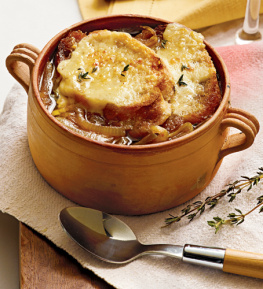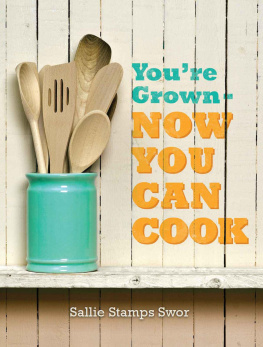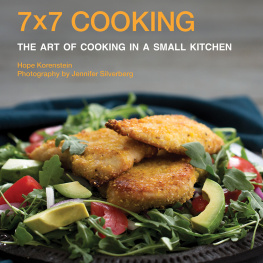

Published in 2013 by Struik Lifestyle
(an imprint of Random House Struik (Pty) Ltd)
Company Reg. No 1966/003153/07
Wembley Square, First Floor, Solan Road,
Gardens, Cape Town 8001
PO Box 1144 Cape Town 8000 South Africa
www.randomstruik.co.za Copyright in published edition:
Random House Struik (Pty) Ltd 2013
Copyright in text: Hein Scholtz 2013
Copyright in photographs:
Random House Struik (Pty) Ltd 2013 All rights reserved. No part of this publication may be reproduced, stored in a retrieval system or transmitted, in any form or by any means, electronic, digital, mechanical, photocopying, recording or otherwise, without the prior written permission of the publishers and the copyright owner(s). ISBN 978 1 43170 291 6 (Print)
ISBN 978 1 43230 148 4 (Epub)
ISBN 978 1 43230 149 1 (PDF)
Publisher: Linda de Villiers
Managing editor: Cecilia Barfield
Design manager: Beverley Dodd
Editor: Bronwen Leak
Designer: Helen Henn
Photographer: Warren Heath
Photographers assistant: Michael Leveson
Food stylist: Brita du Plessis
Food stylists assistant: Yvette Pascoe
Proofreader: Gill Gordon
Indexer: Bronwen Leak
CONTENTSINTRODUCTION Its amazing how, for someone who has so much to say about food, I struggled to find the words to start the introduction to my very own cookbook. Like with most things, I guess it would be best to start with the basics: I love food. Food brings people together.
It nourishes. Its colourful and inspires creativity and alchemy. But lets get real for a second. It all boils down to taste. If something tastes good, your mouth salivates. You close your eyes when you take the first few bites.
You go back for seconds. You get excited to eat it. You tell people about it. These are the moments in life that I cherish, when the food I eat not only fills my stomach, but makes me experience a whole host of different sensations. But for a lot of people, food also brings frustration something I first experienced when I moved out of my parents house at the tender age of 19, to study at university. In the dining hall of the university residence, I gained a healthy respect for the food my mother prepared even the stuff I hadnt liked, longing for it when compared to some of the fare I was served in my first year.
I wasnt alone. We did a poll once in res and I remember someone talking about how unsurprising it was that the majority of students didnt like res food, even though they were paying a great deal of money for the service. Whats more, only a small percentage of students are lucky enough to have res placement the vast majority live in private accommodation. These kids face an even bigger hurdle: to fend for themselves when it comes to mealtimes. Food is forever on a students mind. What will I have for lunch? What takeaway looks good? Can I afford that? What groceries should I buy this week? Can I make this in my small oven/microwave? Organic, grain fed, free range should I care? How do I carry my sandwich to class without squishing it? Do I always have to eat the same things? We were forever complaining about what we were eating.
My friends looked forward to going home because then they could get home-cooked meals. Being from Namibia, I had no such luck. I had to feed myself on long weekends and holidays. When we moved out of res, the situation didnt improve for most of us. During the week my friends would either live on takeaways or buy something every day on the way home from class. I remember thinking to myself how expensive an exercise it was I sure as hell didnt have enough money to do that.
So I asked some of them why they always bought their meals even when eating at home and the answer startled me: they didnt really know what else to do. I was shocked, but it got me thinking. You see, even though I too was now living in private accommodation, I had loved learning and experimenting in the kitchen when I was a child at home. This had allowed me to just carry on when I started out on my own. I realised how lucky I was. For a sizeable chunk of the student population, food preparation extends to making a sandwich or quickly boiling two-minute noodles.
Living on my own gave me a chance to start forming my own food habits habits I will in all likelihood retain for the rest of my life. So, being what most people term a foodie (I liken it to being a sports fanatic, only I play my matches in the kitchen and on the braai and not necessarily on the sports field), I dedicated my student years to trying out dishes that were not only tasty, nutritious and healthy, but also student-friendly. I held dinner parties, cooked romantic meals, made my own fast food, bought groceries (that I actually used), made stews, sandwiches and sweet things, and braaied. I did all these things on a modest student budget, and all in a reasonable time. Although I ate out a lot (my other hobby, besides experimenting with my own food, is to enjoy the triumphs of others), I usually ate at home or made sure there was something to eat when I had to be home. This also meant I almost always made lunch for myself, making the pull of the food shops in student centres less magnetic.
My wallet still thanks me, as do my taste buds. These self-taught food habits and recipes also saved my tuchus when I started working, since the student lifestyle closely mirrors that of a young professional (the most notable difference being that there is even less time to cook, and not much of a budget to work with initially). And this is ultimately the idea behind this cookbook. I want to help you form your own healthy food habits; to not just rely on ready-made and expensive meals either gourmet from your local upmarket grocery store or takeaways from your favourite pizza joint but to develop your palate and make your own food. I want to help you solve the mid-week lunch crises, to host cheaply, and even just to get started. I am not saying that you wont eat two-minute noodles now and then, or that you wont stretch the limits of the various uses of canned tuna or baked beans.
Instead, the recipes in this book are also for when you decide to do something different, something a little out of the ordinary. Thats not to say you cant cook them every night. I have been using these since my first year away from home. My wish for you whether you are a student, a young person who has just left home and started working, or even someone who just bought this cookbook because you found it interesting is that you allow yourself to enjoy it. Enjoy making food. Enjoy eating it.
Life really is about the small things. Now go and introduce yourself to your kitchen, no matter how small it is. ;-)  www.heinscholtz.co.za INITIATION
www.heinscholtz.co.za INITIATION With regards to the format of this book, you will notice a social media theme. The reason behind this is quite simple really, and it has to do with the fact that all I really want is to help you discover your inner foodie. Each recipe has a hash tag (#) that will allow you to comment on that particular recipe on Twitter. Here you can share your own (and your guests) experiences with the dish, post photos of variations, suggest and advise, or just make friends with other people who have tweeted the same recipe.
With regards to the format of this book, you will notice a social media theme. The reason behind this is quite simple really, and it has to do with the fact that all I really want is to help you discover your inner foodie. Each recipe has a hash tag (#) that will allow you to comment on that particular recipe on Twitter. Here you can share your own (and your guests) experiences with the dish, post photos of variations, suggest and advise, or just make friends with other people who have tweeted the same recipe.

![Scholtz Munch: [#trendygoodfood]](/uploads/posts/book/234356/thumbs/scholtz-munch-trendygoodfood.jpg)







 Published in 2013 by Struik Lifestyle
Published in 2013 by Struik Lifestyle www.heinscholtz.co.za INITIATION
www.heinscholtz.co.za INITIATION With regards to the format of this book, you will notice a social media theme. The reason behind this is quite simple really, and it has to do with the fact that all I really want is to help you discover your inner foodie. Each recipe has a hash tag (#) that will allow you to comment on that particular recipe on Twitter. Here you can share your own (and your guests) experiences with the dish, post photos of variations, suggest and advise, or just make friends with other people who have tweeted the same recipe.
With regards to the format of this book, you will notice a social media theme. The reason behind this is quite simple really, and it has to do with the fact that all I really want is to help you discover your inner foodie. Each recipe has a hash tag (#) that will allow you to comment on that particular recipe on Twitter. Here you can share your own (and your guests) experiences with the dish, post photos of variations, suggest and advise, or just make friends with other people who have tweeted the same recipe.